Few things feel worse than falling ill after enjoying your favourite meal. Unfortunately, this is sometimes the reality when food is not prepared or stored properly. Discomfort such as abdominal discomfort, nausea, or general digestive upset can follow, leaving you feeling unwell and drained.
While there is no instant fix for this kind of discomfort, there are simple, everyday habits that may help support your recovery and overall well-being during such times.
What many people do not realise is that some of the ingredients commonly found in their kitchen might be helpful in managing mild digestive discomfort. For example, cumin seeds, often used in cooking, may have properties that support digestion and soothe the stomach when included as part of a balanced routine1.
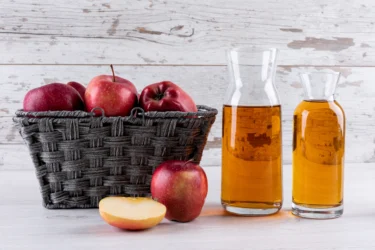
Apple cider vinegar is known to have antibacterial properties and may support digestive health. Some people include it as part of their home routine during periods of digestive discomfort2.
Tips on How to Consume: Add two tablespoons of apple cider vinegar to a glass of lukewarm water and drink it away. This may help stabilise the body as you recuperate from the condition.

Rich in potassium and fibre, bananas are easy to digest and make for a reliable, quick, healthy option for food poisoning3.
Tips on How to Consume: Consume one whole, ripe banana daily, or prepare a banana shake and consume the same twice every day.
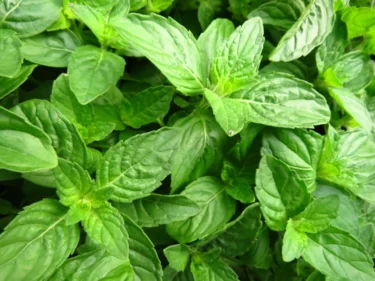
Basil has several health benefits. Its antimicrobial properties can alleviate the discomfort caused by food poisoning4.
Tips on How to Consume: Consume the juice of basil mixed with a teaspoon of honey, or chew on some basil leaves along with cardamom. The combination of cardamom and basil help to ease food poisoning symptoms.
I recommend including toast in your diet if you’re dealing with food poisoning. Toast is a low-fibre food option that may help firm up your stool, making it easier on your digestive system11.
Dr. Smita Barode, B.A.M.S, M.S.
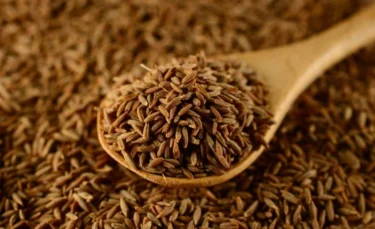
The seeds of this flavourful herb can help reduce stomach inflammation and ease abdominal discomfort caused due to food poisoning5.
Tips on How to Consume: Add one teaspoon of cumin seeds to a cup of boiling water. Additionally, add some freshly extracted coriander juice to it with a pinch of salt. Allow it to cool down until it is lukewarm and then drink it.
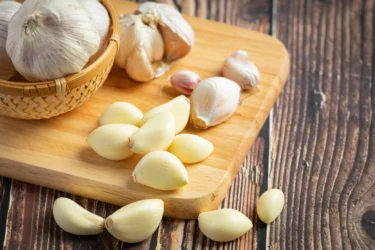
Packed with antibacterial, antifungal, and antiviral properties, garlic is certainly one of the most nutritive ingredients available. One of the many benefits of garlic is that it helps detoxify your system, thus contributing to digestive wellness6.
Tips On How to Consume: Chew on a fresh garlic clove or mix the crushed cloves of garlic with a teaspoon of honey before consuming.
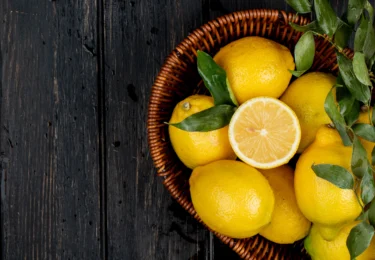
Lemons are a great source of Vitamin C. It helps to keep you hydrated and relieves discomfort in the digestive system. Moreover, lemon helps in detoxification, which in turn, keeps your system clean and healthy from within7.
Tips On How to Consume: Squeeze out half a lemon into a glass of lukewarm water. Add a teaspoon of honey to it and consume. Drinking this water 2-3 times a day can speed up recovery from food poisoning.
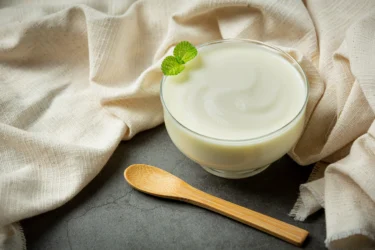
The antimicrobial and antibacterial properties of yoghurt make it an ideal food to eat. Consuming yoghurt helps to combat bacteria, which causes food poisoning. When combined with fenugreek seeds, it has a soothing effect on your stomach, the concoction provides prompt relief from abdominal discomfort8,9.
Based on my observations, when dealing with food poisoning, opting for a nourishing choice like broth and whole-wheat crackers might be highly beneficial. Broth, with its sodium and water content, may aid in rehydration, helping to replenish lost fluids. Meanwhile, the crackers might provide some bulk to your stools, easing your digestive discomfort13.
Dr. Siddharth Gupta, B.A.M.S, M.D (Ayu)
After experiencing food poisoning, it is important to give your body the care and support it needs to recover. In addition to choosing gentle foods, here are some steps that may help speed up your recovery:
As a doctor, I highly recommend that you always check for the word ‘pasteurised’ on the containers of milk, yoghurt, cheese, and other dairy products. Pasteurisation is a crucial process that may help eliminate harmful bacteria and pathogens, ensuring the safety of these products10.
Dr. Anuja Bodhare, B.A.M.S, M.D (Ayu)
Now that you know which foods may support your recovery from food poisoning, it’s equally important to avoid those that could make your symptoms worse. Start by eliminating the food that initially caused the discomfort. Then, focus on consuming food that is hygienic and safely prepared. It is advisable to avoid fried, spicy, or heavily seasoned foods, including junk food, as well as caffeinated drinks, alcohol, dairy products, and nicotine. Additionally, avoid of fruit juices, as they may irritate the stomach. While fibre is an essential part of a healthy diet, it is best to limit high-fibre foods during recovery, as they can put extra strain on your digestive system.
Adding oatmeal to your diet might be really helpful. Oatmeal is low in fibre, making it a suitable choice when you are recovering from an upset stomach12.
Dr. Rajeev Singh, BAMS
Food poisoning often occurs after consuming food that may be contaminated or handled improperly. During such times, it may be helpful to avoid certain types of foods that are more difficult to digest or may irritate the stomach. Items such as dairy products, spicy or heavily processed foods, fried snacks, and raw or unwashed fruits and vegetables are best limited while experiencing digestive discomfort. Opting for lighter, well-cooked meals may support overall digestive comfort. It is always advisable to consult a healthcare professional for appropriate dietary guidance, especially if symptoms continue or worsen.
Recovering from food poisoning requires both careful food choices and adequate rest for your digestive system. By opting for easily digestible, hydrating, and bland foods, you can help support your recovery. Additionally, it is crucial to avoid foods and drinks that could further irritate your stomach or prolong discomfort. While natural remedies and home care can offer relief, it is always important to consult a healthcare professional if symptoms persist or worsen. Taking these steps can help you recover more comfortably and return to your regular routine when you’re ready.
Disclaimer: The information provided here is for educational/awareness purposes only and is not intended to be a substitute for medical treatment by a healthcare professional and should not be relied upon to diagnose or treat any medical condition. The reader should consult a registered medical practitioner to determine the appropriateness of the information and before consuming any medication. PharmEasy does not provide any guarantee or warranty (express or implied) regarding the accuracy, adequacy, completeness, legality, reliability or usefulness of the information; and disclaims any liability arising thereof.
Garlic is a spice that is used in the kitchen for centuries. This herb is known to have curative and medicinal properties because of its antibacterial and antiseptic nature. These beneficial properties of garlic are because of a compound, allicin. Garlic is also rich in minerals like phosphorus, zinc, potassium, and magnesium. Vitamin C, vitamin K, folate, niacin and thiamine also are found abundantly in garlic1,2.
Here is the nutritional chart for 100 grams of raw garlic. Note that 1 medium to large garlic clove weighs between 3-8 grams each. The RDI- Percentage of recommended daily intake of garlic is as follows5:
Vitamins
Minerals

Raw garlic has the potential to reduce cough and cold in children and adults3. Research4 suggests that using garlic may help relieve symptoms of congestion in children.
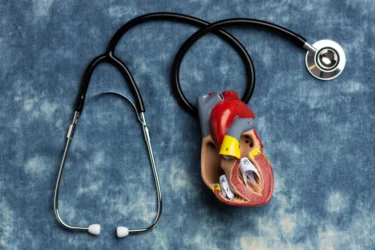
Allicin, a compound found in garlic stops the oxidizing of LDL (bad cholesterol). This reduces cholesterol levels and improves heart health. Regular consumption of garlic reduces the incidence of blood clots and thus helps prevent thromboembolism . Garlic also lowers blood pressure so is good for patients with hypertension1,3,6.

Several studies7 suggest that garlic may be beneficial for brain health because of its antioxidant and anti-inflammatory properties It may be effective in neurodegenerative diseases like Alzheimer’s and dementia6.

Digestive problems improve with the inclusion of raw garlic in the diet. It has shown beneficial effects on the intestines and also reduces inflammation. Eating raw garlic helps to clear out intestinal worms. The advantage of garlic is it promotes the growth of good bacteria and reduces the bad bacteria thus helping in better digestive health6.
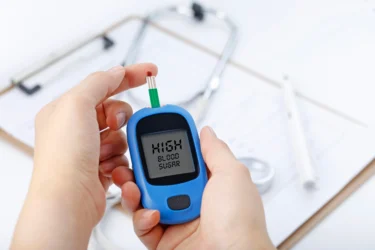
Research1 suggests that those who have diabetes may observe their blood sugar levels improve by eating raw garlic, but always consult a doctor to know if this can be beneficial to your case before making changes to your diet.

Garlic may help reduce free radicals and damage to the DNA. The zinc in garlic may promote immunity and the vitamin C may help with infections. Garlic may also be beneficial in eye and ear infections because of their antimicrobial properties1,2.

Garlic helps prevent acne and lightens acne scars. Cold sores, psoriasis, rashes, and blisters may benefit from the application of garlic juice. It may also protect against UV rays and therefore may benefit from ageing8. Garlic may cause skin irritation and chemical burns so use it only under the guidance of a doctor.
Based on my observations, garlic has been potentially used in traditional medicine for ages. It’s pretty fascinating how it can be helpful in different things. For instance, studies2 have shown that garlic may be effective in dealing with warts, denture stomatitis, venous ulcers, and even skin wounds. So, if you’re dealing with any of these issues, using garlic might just do the trick.
Dr. Smita Barode, B.A.M.S, M.S.
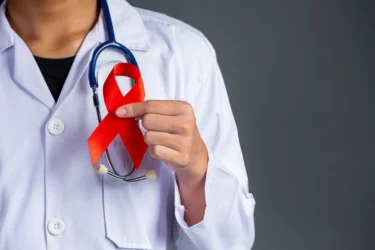
Research1 suggests that because of the high amount of antioxidants, garlic may help protect the body against lung, prostate, bladder, stomach, liver and colon cancer. The antibacterial property of garlic helps prevent peptic ulcers as it helps remove the pathogen from the gut2,6.

Garlic reduces the expression of genes responsible for the formation of adipose cells which store fat. It also increases thermogenesis in the body and leads to the burning of more fat and the lowering of LDL (bad cholesterol)2.
Apart from the fact that it is good for weight loss, garlic is highly nutritional. In fact, one clove of raw garlic, which is around 3 grams, contains2,3:

Garlic is considered one of the best ”performance enhancing” substances. In olden times, garlic was used to treat fatigue and improve the work capacity of labourers. Studies on rodents suggest consuming garlic helps in improving exercise performance. People who had heart disease consumed garlic for 6 weeks and this resulted in a 12% reduction in their heart rate and better exercise capacity9.

Fresh garlic juice has the potential to reduce the growth of E. coli bacteria that cause urinary tract infection (UTI). It also helps prevent kidney infections.
Garlic reduces infections on wounds, promotes hair growth, bone health and liver health2. Most of the home remedies are effective only if garlic is consumed raw but should be done only with the supervision of a healthcare provider.

According to studies11 from Japan, raw garlic when aged in a mixture of water and alcohol may have significant effects on exercise endurance. Human studies have also been conducted that have shown that garlic can indeed improve the symptoms of exercise fatigue.
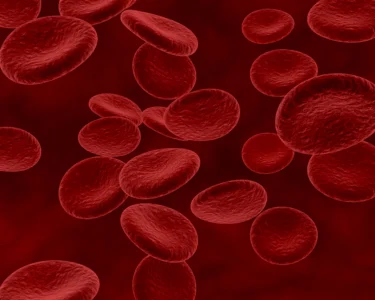
For people who are susceptible to lead poisoning due to occupational hazards, garlic may be the best organic solution. Research suggests that garlic is safer and better at reducing lead poisoning of the blood than d-Penicillamine, which is the common drug used to treat the same10.
Also Read: Natural Blood Thinners: Benefits, Risks, and Precautions

Menopause in older women has often been associated with a lack of the female hormone known as oestrogen due to irregular production of a protein known as a cytokine. Consumption of garlic has been seen to regulate this to some extent and therefore, may be effective in overcoming oestrogen deficiency after menopause1.

Consuming garlic in your regular diet can also help to prevent or reduce the onset of osteoarthritis. Research has shown that garlic contains a compound known as diallyl disulphide which helps to maintain bone density and therefore can potentially delay the onset of bone-related ailments like osteoarthritis.
From what I have seen, garlic oil might possess anti-inflammatory properties. In cases of soreness and inflammation in joints or muscles, applying garlic oil topically may be beneficial2. Rubbing the affected area with garlic oil can potentially help reduce inflammation and provide relief.
Dr. Siddharth Gupta, B.A.M.S, M.D (Ayu)

Garlic is also believed to help reduce the stickiness of the platelets in your blood. These platelets are responsible for the clotting of blood. Consuming a healthy dose of garlic can help reduce the excessive clotting effect of platelets on the blood. Therefore, it may help prevent unnecessary blood clots inside arteries that may reach up to your heart causing a heart attack.
I think that garlic might be good for your arteries and blood pressure. When we eat garlic, the sulphur in it gets converted into a gas called hydrogen sulphide2. This gas may help expand our blood vessels, which makes it easier to control blood pressure. However, it’s always a good idea to talk to your doctor about whether adding more garlic to your diet might be beneficial or not.
Dr. Rajeev Singh, BAMS
When you take cooked garlic by mouth it is usually, safe but can cause side effects such as bad breath, heartburn, gas, and diarrhoea. If you take raw garlic by mouth, the side effects are often worse and may increase the risk of bleeding and cause allergic reactions in some people.
Garlic products like gels and pastes are usually safe. But may cause skin damage that is similar to a burn, especially raw garlic may cause severe skin irritation.
One must avoid having excess amounts of garlic during pregnancy or if breastfeeding. Children can take it in doses of up to 300 mg three times daily for up to 8 weeks and not more than that, people with the bleeding disorders must avoid garlic, if you undergo surgery, do not consume garlic as it may prolong bleeding and interfere with blood pressure. Doctors may advise to stop having garlic two weeks before surgery and garlic may lower blood sugar levels.
Yes, garlic may reduce cholesterol levels, especially LDL (bad) cholesterol, when consumed regularly as part of a balanced diet. Its active compounds may help inhibit cholesterol synthesis in the liver and may improve overall cardiovascular health.
Garlic is generally not recommended for individuals with acidity or acid reflux problems. It can potentially worsen symptoms due to its ability to stimulate gastric acid secretion. People prone to acidity should limit garlic intake and consult a healthcare provider for personalised dietary recommendations.
Garlic has antioxidant and anti-inflammatory properties that may benefit liver health by supporting its detoxification processes. Regular consumption of garlic in moderation as part of a balanced diet can potentially help protect the liver from oxidative stress and inflammation. However, individual responses may vary, and consulting a healthcare provider is advisable for specific liver health concerns.
Yes, consuming excessive amounts of garlic can lead to digestive discomfort, such as upset stomach, bloating, and gas. In some cases, it may also cause heartburn or worsen acid reflux symptoms. Moderation is key to avoiding these issues while still benefiting from garlic’s health-promoting properties.
Garlic may help reduce creatinine levels by supporting kidney function and supporting overall cardiovascular health. Its antioxidant properties can help in reducing oxidative stress in the kidneys. However, specific benefits vary among individuals, and it should not replace medical treatment for kidney conditions.
Garlic is believed to have a positive impact on testosterone levels by enhancing antioxidant status and reducing oxidative stress, which may indirectly support testosterone production. However, more research is needed to establish garlic’s direct influence on testosterone levels in humans.
Garlic has been studied for its potential antibacterial properties, including against H. pylori, the bacteria associated with stomach ulcers. Its active compounds, such as allicin, may inhibit H. pylori growth and contribute to reducing bacterial load in the stomach. However, more research is needed to confirm garlic’s effectiveness as a treatment for H. pylori infection.
There is limited scientific evidence suggesting garlic can directly reduce high prolactin levels. However, its antioxidant properties may support overall hormone balance and contribute to general health benefits, potentially aiding in the regulation of prolactin levels indirectly. Consulting with a healthcare provider for appropriate treatment options is advisable for managing high prolactin levels.
Garlic is not acidic; in fact, it has a slightly alkaline pH. However, it can stimulate gastric acid secretion in some individuals, potentially exacerbating acidity or acid reflux symptoms. Monitoring individual tolerance is recommended when consuming garlic, especially for those prone to digestive issues.
Swallowing garlic may not directly help with acne. However, some people believe that the antibacterial properties of garlic, when ingested or applied topically, can potentially help with acne-causing bacteria. Its anti-inflammatory properties may also contribute to reducing inflammation associated with acne.
Yes, garlic is believed to have thermogenic properties that can increase body heat slightly when consumed in larger quantities. This effect is attributed to its ability to stimulate circulation and metabolism. However, the increase in body heat is typically mild and varies among individuals.
Garlic offers several health benefits. It has antioxidant properties that protect cells from oxidative damage, supports cardiovascular health by improving cholesterol levels and blood pressure, and may have antibacterial and anti-inflammatory effects. Regular consumption of garlic as part of a balanced diet can contribute to overall health and well-being.
Garlic is not recommended for dogs as it can be toxic, especially in large amounts. It contains compounds that can damage red blood cells in dogs, leading to a condition called haemolytic anaemia. It’s safer to avoid feeding garlic to dogs and consult a veterinarian for appropriate dietary choices.
Disclaimer: The information provided here is for educational/awareness purposes only and is not intended to be a substitute for medical treatment by a healthcare professional and should not be relied upon to diagnose or treat any medical condition. The reader should consult a registered medical practitioner to determine the appropriateness of the information and before consuming any medication. PharmEasy does not provide any guarantee or warranty (express or implied) regarding the accuracy, adequacy, completeness, legality, reliability or usefulness of the information; and disclaims any liability arising thereof.